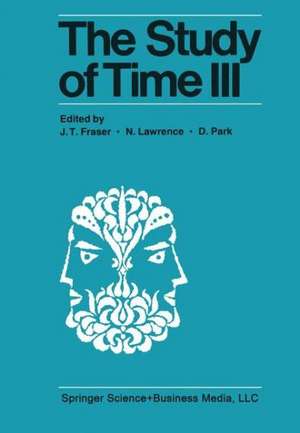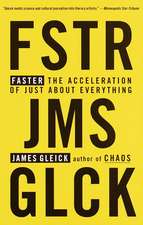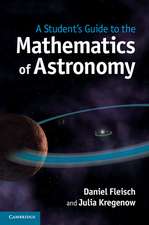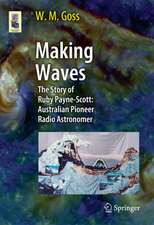The Study of Time III: Proceedings of the Third Conference of the International Society for the Study of Time Alpbach—Austria
Editat de J. T. Fraser, N. Lawrence, D. Parken Limba Engleză Paperback – 21 feb 2013
Preț: 667.05 lei
Preț vechi: 784.77 lei
-15% Nou
Puncte Express: 1001
Preț estimativ în valută:
127.68€ • 138.74$ • 107.32£
127.68€ • 138.74$ • 107.32£
Carte tipărită la comandă
Livrare economică 21 aprilie-05 mai
Preluare comenzi: 021 569.72.76
Specificații
ISBN-13: 9781461262893
ISBN-10: 1461262895
Pagini: 740
Ilustrații: VIII, 727 p. 30 illus.
Greutate: 1.16 kg
Ediția:Softcover reprint of the original 1st ed. 1978
Editura: Springer
Colecția Springer
Locul publicării:New York, NY, United States
ISBN-10: 1461262895
Pagini: 740
Ilustrații: VIII, 727 p. 30 illus.
Greutate: 1.16 kg
Ediția:Softcover reprint of the original 1st ed. 1978
Editura: Springer
Colecția Springer
Locul publicării:New York, NY, United States
Public țintă
ResearchDescriere
The papers in this volume were delivered and responded to at the Third Conference of the International Society for the Study of Time. The meeting took place during sunny days, punctuated by an occasional brief storm, in the confer ence facilities of the Österreichisches College in Alpbach, Austria, from ]uly 1 to ]uly 10, 1976. In the middle of it came ]uly 4, the 200th anniversary of the Declaration ofindependence, and in honor ofparticipants from the United States there was a special session of papers on the subject of Freedom and Time. [See Fraser, Park in this volume. ] The effect of the papers was kaleidoscopic; reading the table of contents one can surmise the experience of those enthusiasts, and there were several, who heard them all. I think that most people who have been puzzled about time will agree that it is not clear wh at the puzzle is or from what direction the insights will come that will enable us to understand the situation a litde more clearly. As one of the participants wrote afterwards, "After all , we do not know apriori whether there exists areal unity in studies about time, but if one exists it must reveal itself progressively in the course of successive experiences such as these lectures. If it were easy to find, it would have been found already without the Society's help.
Cuprins
I. Prolegomena.- Metaphysical Presuppositions and the Study of Time.- Levels of Language in Discourse about Time.- II. Physics.- The Third Storm of the Twentieth Century: The Einstein Paradox.- Space-Time Singularities in Cosmology and Black Hole Evaporation.- Beneath Time: Explorations in Quantum Topology.- Thermodynamics, Cosmology, and the Physical Constants.- On Two Fundamental Laws of Nature and the Role of Time in Time-Space Manifold.- The Theory of Space-like Time.- III. Living Clocks.- Biological Clocks and Their Synchronizers.- The Living Clocks of Marine Organisms.- The Measurement of Biological and Social Changes.- IV. Subjective Time.- Time, Memory, and Affect: Experimental Studies of the Subjective Past.- Future Time Perspective and Ego Strength.- V. Past, Present, and Future.- The Objectivity, or Otherwise, of the Present.- Ideas of Beginnings and Endings in Cosmology.- The Past and the Future.- The Boundaries of the Notion of Time.- VI. Society.- Temporal Inventories and Time Structuring in Large Organizations.- The Individual and Society.- City Rhythms.- The Study of Time in Poland, Czechoslovakia, and the Soviet Union.- VII. Literature and the Arts.- Fiction: The Language of Time — Thomas Mann and James Joyce.- The Eternal Moment: D. H. Lawrence’s The Rainbow and Women in Love.- The Changing Iconography of Father Time.- Time in the Musical Consciousness of Old High Civilizations — East and West.- Poiesis: Time and Artistic Discourse.- VIII. Christianity Hinduism, Mithraism.- Time, Space, and Freewill: The Leibniz-Clarke Correspondence.- The Concept of Time in the Mithraic Mysteries.- Time and Sacrifice — The Sacrifice of Time and the Ritual of Modernity.











